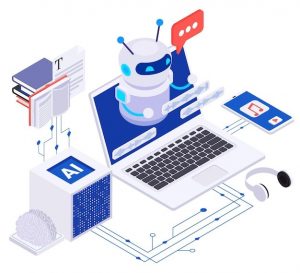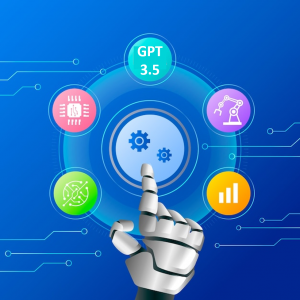In the ever-evolving world of artificial intelligence, OpenAI has unleashed a game-changing update that’s set to redefine how we interact with machines. The new kid on the block is GPT-3.5 Turbo, bringing the power of fine-tuning to the forefront. This means that the AI, known for its text-generation prowess, can now be customized to suit specific tasks and behaviors better, opening the doors to endless possibilities.
Also Read: Unveiling GPTBot: OpenAI’s Bold Move to Crawl the Web

Outperforming Expectations: GPT-3.5 Turbo’s Claims to Fame
Hold on tight because GPT-3.5 Turbo is not just any upgrade. OpenAI boldly claims that fine-tuned versions of this lightweight AI can go toe-to-toe with, or even outperform, the powerhouse GPT-4 in certain tasks. It’s like your favorite underdog suddenly rising to challenge the champion.
Unlocking AI’s Potential: GPT-3.5 Turbo’s New Customization
Since the arrival of GPT-3.5 Turbo, developers and businesses have been yearning for a touch of personalization. OpenAI has listened and answered the call. This update empowers developers to craft models that excel in their intended roles, offering users a unique and tailored experience. Whether mimicking a specific language, perfecting responses’ format, or nailing the ideal tone, GPT-3.5 Turbo is now the tool of choice.
Also Read: OpenAI Launches Custom Instructions for ChatGPT for Personalized AI Interaction

Trimming the Fat: Shorter Prompts, Faster Results
Here’s the icing on the cake: fine-tuning doesn’t just make your AI smarter; it also makes it leaner. Businesses using GPT-3.5 Turbo can now cut down on prompt size, speeding up API calls and, you guessed it, saving costs. Early tests have shown prompt sizes slashed by up to 90%, thanks to fine-tuning.
Unleash the Possibilities: Use Cases That Shine
Fine-tuning isn’t just a buzzword – it’s a superpower for AI. Imagine a chatbot that resonates with your brand’s voice or an advertising genius that crafts taglines and social posts in a flash. GPT-3.5 Turbo can also revolutionize translation, streamline report writing, generate code, and summarize text. The potential? The sky’s the limit.
Also Read: Create Book Summarizer in Python with GPT-3.5 in 10 Minutes

The Nitty-Gritty: How Fine-Tuning Works
While fine-tuning sounds like magic, it’s a science. Prepping data, uploading files, and creating fine-tuning jobs via OpenAI’s API kickstart the process. It’s not all smooth sailing, though. Fine-tuned data faces rigorous checks through a moderation API and a GPT-4-powered moderation system to ensure safety standards. But wait, there’s more! OpenAI plans to introduce a fine-tuning UI, making the process smoother.
Also Read: A Comprehensive Guide to Fine-Tuning Large Language Models

Crunching the Numbers: What’s the Cost?
Customization comes at a price; in AI, that’s measured in tokens. Training costs $0.008 per 1K tokens, usage input is $0.012 per 1K tokens, and usage output is $0.016 per 1K tokens. To put things in perspective, a fine-tuning job with 100,000 tokens – about 75,000 words – would set you back around $2.40.
The Future of AI: More to Come
OpenAI isn’t stopping with GPT-3.5 Turbo. Upgraded GPT-3 base models, with pagination support and added extensibility, are also in the spotlight. And mark your calendars because OpenAI plans to retire the original GPT-3 base models on January 4, 2024. Plus, a cherry on top: fine-tuning for the mighty GPT-4, which can comprehend images alongside text, is on the horizon, set to arrive later this fall.
Also Read: OpenAI Trademarks ‘GPT-5’ – A New Language Model on the Horizon
Our Say
In a world where AI’s potential knows no bounds, OpenAI’s GPT-3.5 Turbo with fine-tuning is poised to change the game. With customization at its core, this AI promises to be your innovation partner, ready to mold itself to your needs and drive us into a future where the line between human and machine continues to blur.




